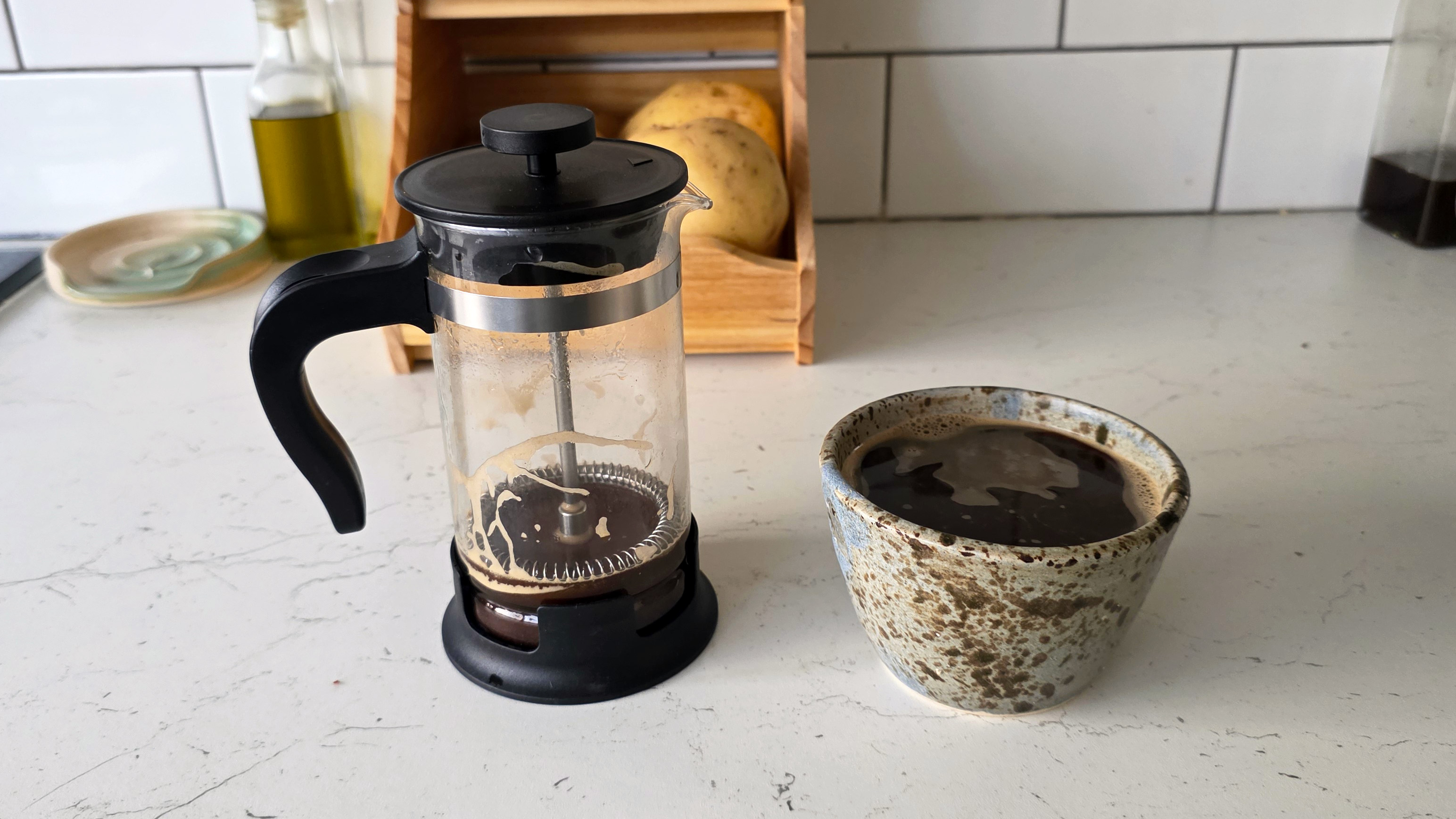There's a heating mistake that’s wrecking your sleep — here's how to fix it in just a few seconds tonight
This simple setting change could transform how well you sleep this winter
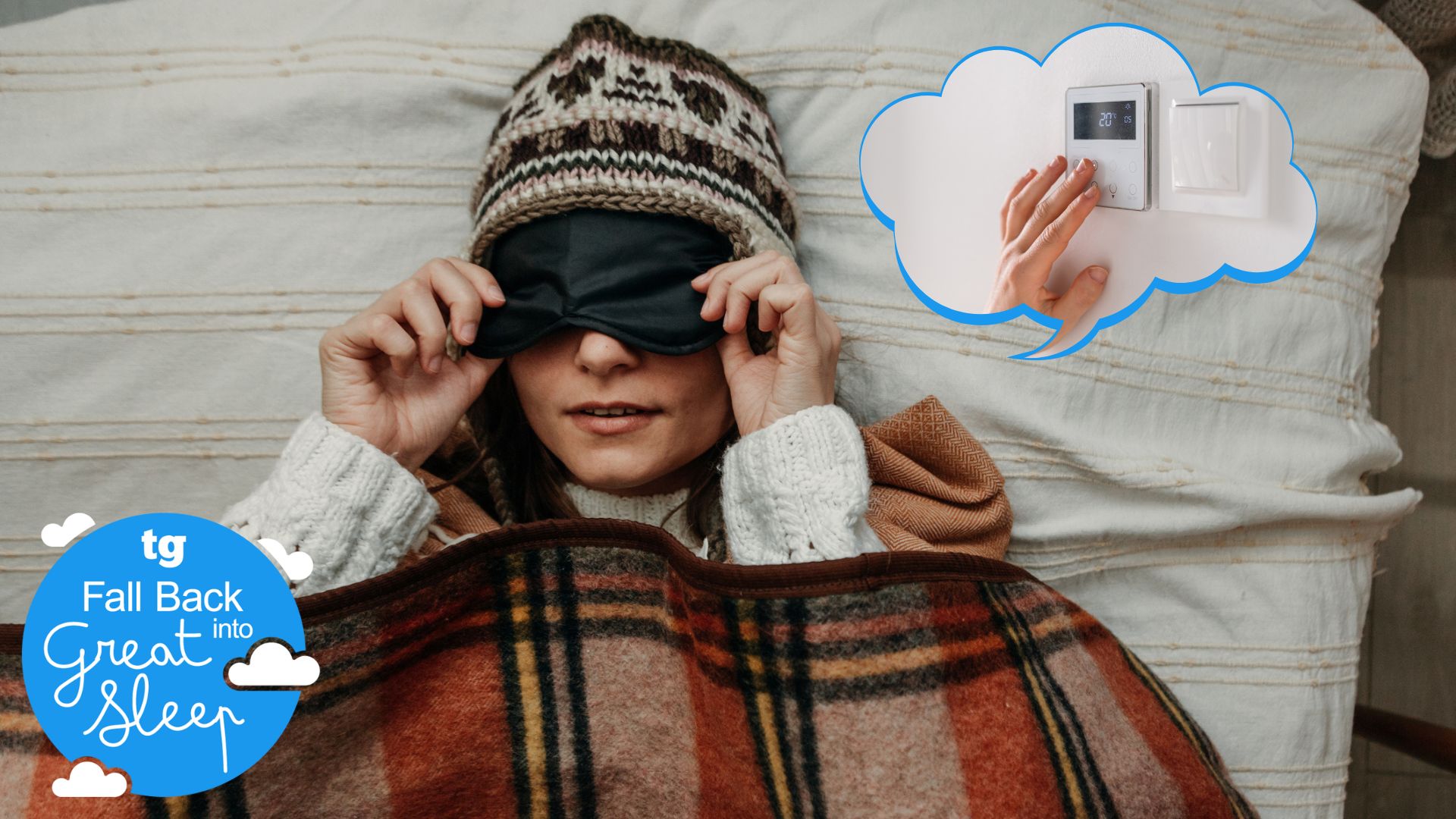
Struggling to nod off lately? You’re not the only one. As the evenings get colder and daylight disappears before dinner, a good night’s sleep can start to feel out of reach. Sure, winter blues, stress and late-night scrolling all play a part — but there could be an unsuspected culprit hiding in plain sight: your home smart heating.
“There’s a complex relationship between temperature and sleep quality, with overheated bedrooms often resulting in disrupted sleep,” says Dr. Hana Patel, NHS GP.

Alongside being Time4Sleep’s resident sleep expert, Dr Hana Patel works as an NHS and private GP specialist in mental health and sleep and is passionate about supporting patients struggling with sleep-related health issues.
The fix? It is surprisingly simple, but can make an incredible impact. This tiny tweak to your thermostat settings tonight could help you fall asleep faster — and stay slumbering until morning. But how exactly does a small tweak to your heating make such a massive change to your sleep cycle?
For our Fall Back into Great Sleep campaign, we’re sharing the best advice for better sleep.
The heating mistake that’s ruining your sleep
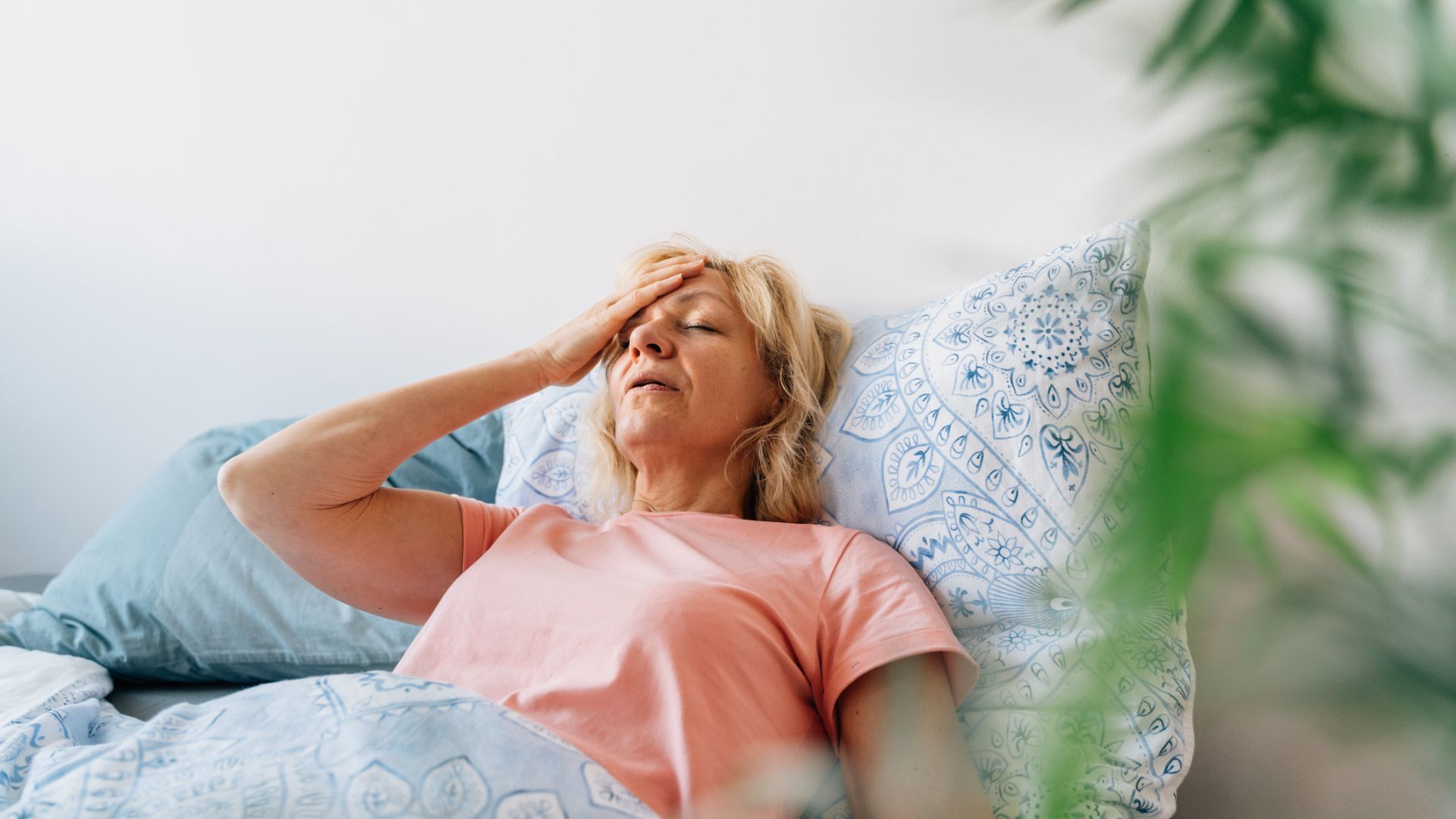
If your heating’s cranked up at night, there’s a good chance your bedroom is too warm for proper sleep. And it’s not just about comfort — your body actually needs to cool down slightly to drift off.
“High temperatures in your bedroom can interfere with your body’s natural cooling process, which is essential for falling and staying asleep,” explains Dr. Patel.
“Your core temperature drops to prepare for sleep, but when the room is hot, it is more difficult for your body to cool down and get a good night’s rest.”
Get instant access to breaking news, the hottest reviews, great deals and helpful tips.
So, what’s the fix?
The fix is easier than you think — it just involves a bit of expert timing.
Setting your thermostat so your heating switches off in the evening means your bedroom will cool down in time for you to sleep. Hello heavenly slumber!
The best temperature for most adults to sleep in is between 65 and 70 F (18 to 21 °C)
Don’t worry about freezing — a well-insulated home holds onto plenty of daytime warmth, so it won’t be icy. I personally have my heating switch off at 10pm, but anytime from 9pm onwards would work well, depending on your bedtime.
This small tweak to your heating tonight could mean waking up feeling properly refreshed tomorrow.
How a hot room wrecks your sleep
This tip is more important than you may assume, because a hot room can really wreck your sleep.
It comes down to body temperature. As you get ready to drift off, your core temperature naturally dips — it’s one of the brain’s cues that it’s time to rest.
Overheated bedrooms can cause continued restlessness throughout the night
But when your bedroom’s too warm, that drop can’t happen properly. Your body ends up working harder to cool down, which keeps you alert instead of relaxed.
On top of this, “overheated bedrooms can cause continued restlessness throughout the night, resulting in delayed and disrupted sleep,” explains Dr Patel.
New research has found that older adults sleep best when the room stays between 68 F to 77 F (20°C and 25°C). Once temperatures crept higher, sleep efficiency dropped and people became more restless during the night. In other words, if your bedroom feels tropical, your sleep probably isn’t great.
And it's not just the getting to sleep that's the problem. Even if you do fall asleep, the heat can push you out of deep, restorative sleep and into lighter, more restless stages.

3 more winter sleep mistakes you’re making
1. Sleeping in
We’ve all been there: the mornings are dark and uninviting, the temperature has dipped down to single figures and sleeping in just feels too tempting. But you must resist for the sake of your sleep health.
Now, the occasional lie-in won’t wreck your body’s clock, but frequently sleeping past your alarm is a sign that you’re slipping into bad habits.
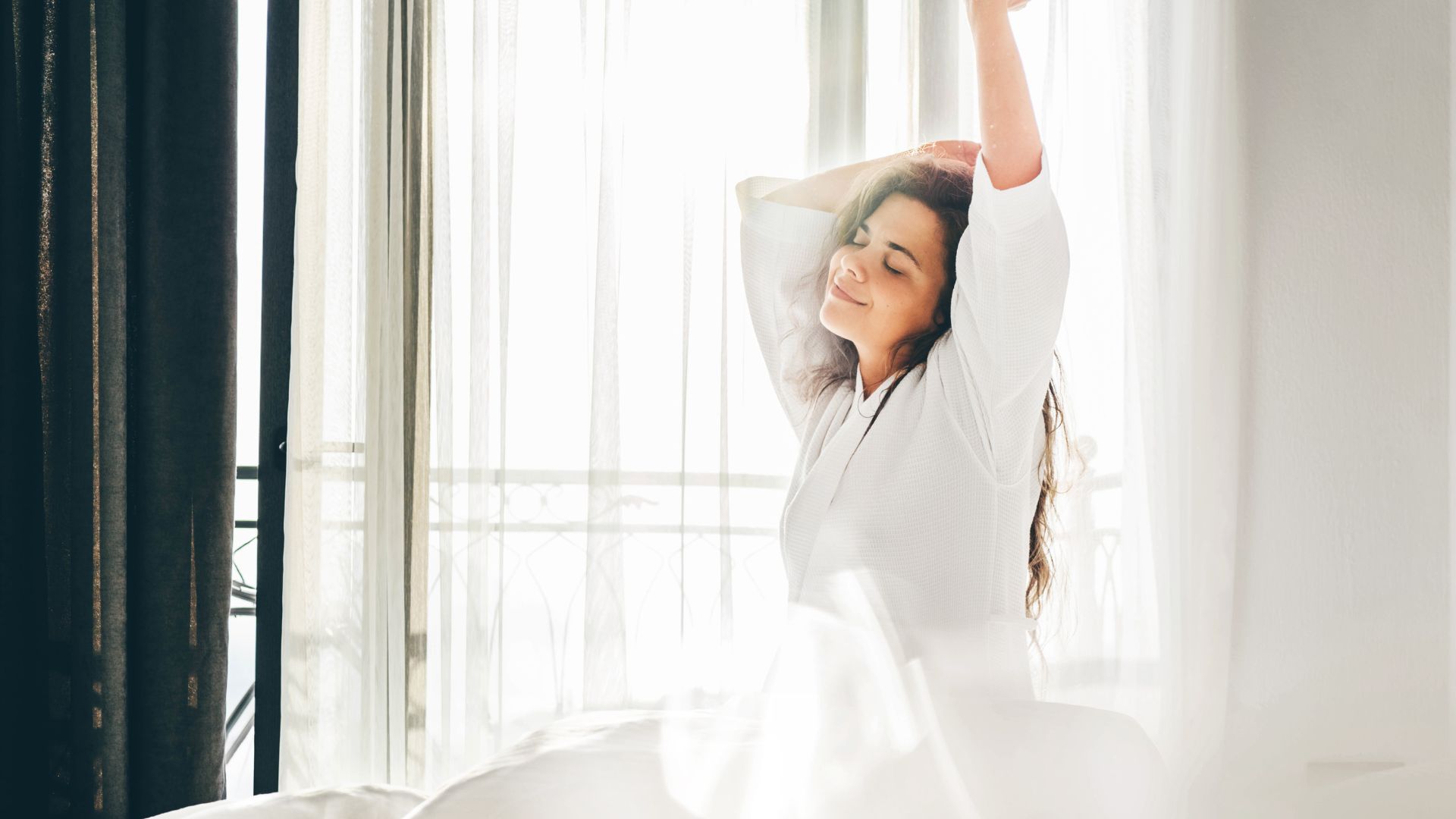
Research from Scandinavian sleep labs shows that when daylight hours drop, our circadian rhythm — the internal clock that tells us when to sleep and wake — naturally shifts later. If you start snoozing past your usual wake-up time, you push that rhythm off track.
Cut to: you’re feeling groggier during the day, struggling to fall asleep at night, and end up in a cycle of inconsistent sleep that leaves you more tired than rested.
Experts like Dr. Patel say that sticking to your regular sleep schedule, even on cold winter mornings, helps keep your sleep quality steady and your energy levels higher.
2. Hibernating
Colder weather doesn’t mean hibernating — it means strolling in crisp weather with a warm beverage of choice in hand. Let us explain.
Good sleep doesn’t start with staying indoors. Instead, getting outside will help keep your body’s internal clock ticking the way it should.
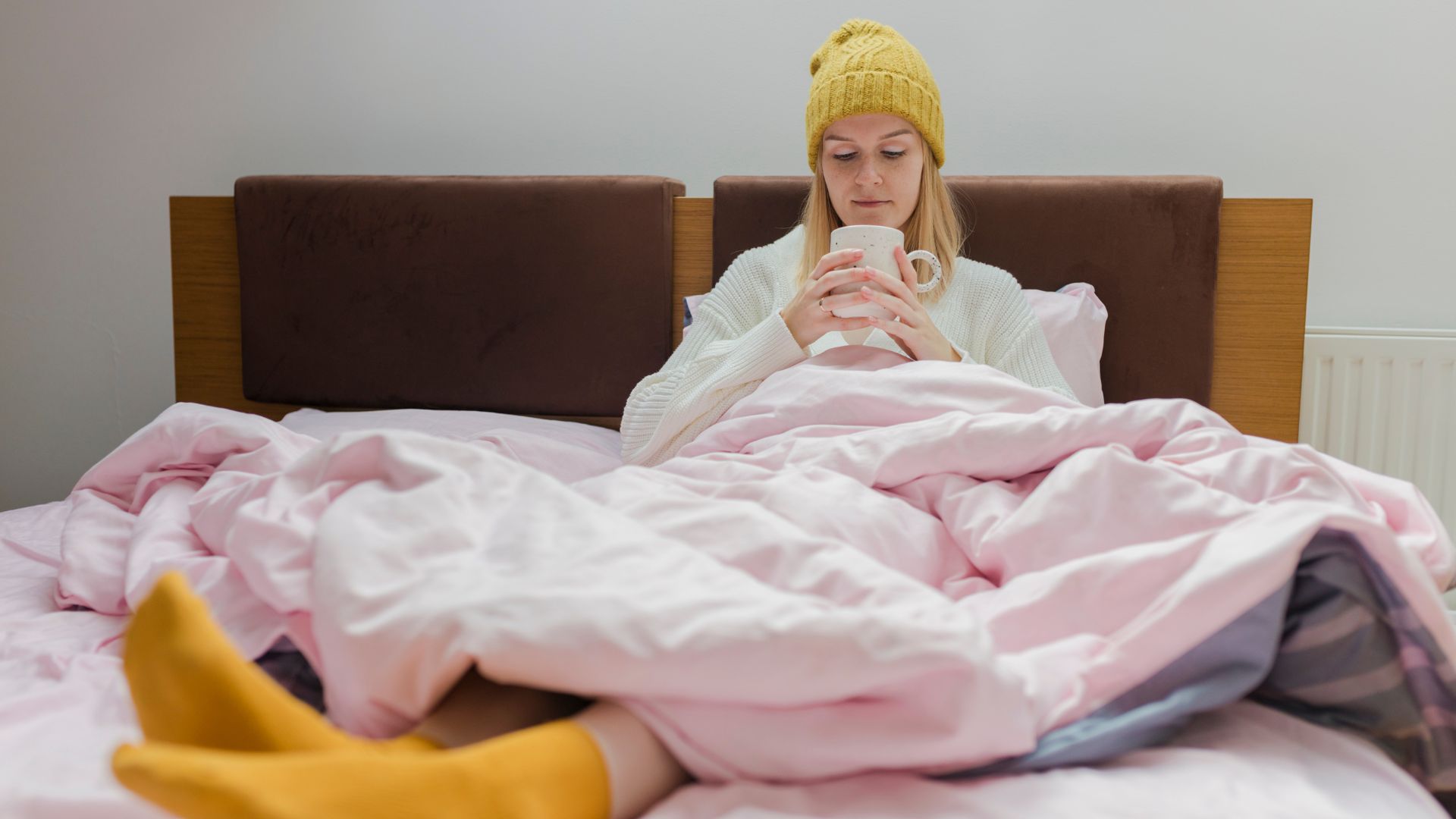
When your eyes are exposed to light, especially in the morning, it sends a signal to your circadian rhythm, telling your body it’s time to be awake and alert. It does this by suppressing melatonin (the sleepy hormone).
That same clock uses the memory of morning light to help you wind down later, triggering the release of melatonin when it gets dark. Remember: you are not a bear so you do not need to hibernate. Now get out there and enjoy the season! Your sleep cycle will thank you later.
3. Piling on the duvets
While it might seem like a foolproof plan, piling on layers of duvets can lead to restless sleep, as you overheat, wake up and then promptly kick those pesky extra layers off.
The best thing to do? Dr. Patel advises to look at the material of your duvet. She says, “If your duvet is made from synthetic materials, like polyester, a thicker one can sometimes block airflow, causing humidity and sweat to build up.”
Breathable bedding is an effective way of keeping you warm at night without overheating
“The discomfort caused from this can disrupt sleep, so it’s important to find the right duvet that works for you,” she adds.
“Using layers and breathable bedding is an effective way of keeping you warm at night without overheating,” she says. “Natural fibres trap heat but let moisture escape, keeping you cool enough to sleep through the night without waking, but warm enough to keep your temperature regulated.”
While layers can help you stay warm at night without turning the heating on, we recommend keeping those layers light and breathable, to avoid overheating.
It's also worth considering your bed itself. Are you sleeping on the best mattress for your comfort? Organic mattresses incorporate materials like wool and cotton which can be great at remaining breathable and moisture wicking all year round.
Louise Ramsay is an experienced writer, regularly covering lifestyle and health articles. She has a masters in multimedia journalism and has recently started writing for Tom's Guide, sharing her expertise in the sleep industry. Louise is interested in the affect of sleep on our overall health and has a keen interest in helping readers improve their sleep, and therefore, their overall wellbeing.
You must confirm your public display name before commenting
Please logout and then login again, you will then be prompted to enter your display name.
 Club Benefits
Club Benefits





